Our dedication to Racial Equality and Social Justice (RESJ) spans decades. Learn more about our RESJ Initiative
Teaching Skills & Methodologies
-
Credits:
32
-
Degree:
Masters of Education
Program Description
Advance your teaching skills and learn new strategies for teaching. Designed for mid-career teachers, this program explores current teaching strategies and methodologies that can revitalize teachers’ classrooms. As part of your graduate work, you will research, write, and share a master’s project that enhances your learning and professional practice. This hands-on program also offers convenient evening, weekend, and online course options to fit your work schedule.
Cambridge College Teaching Skills and Methodologies Master’s Degree Program Highlights
Continuing education is essential for teachers to improve teaching skills and ensure that methodologies of teaching are student-centered and culturally relevant. This master’s degree program offers a flexible, affordable graduate option designed for professional educators who are ready to take their skills to the next level.
- Career-focused learning. This program features a series of professional seminars that enable you to integrate learning from classes, workshops, and experience. You’ll also complete an independent research project based on a topic of your choice.
- Personalized options. Round out your curriculum by choosing content courses in literature, English, social studies, mathematics, science, health, literacy, and English
- as a second language based on the subject areas you want to develop.
- Flexible classes. Offering convenient day, evening, weekend, and online class options designed for adult learners, Cambridge College provides the flexibility you need to complete your master’s degree.
- Exceptional value. Cambridge College is one of the most affordable four-year private nonprofit colleges in the United States, giving you greater value for your education.
- No graduate school tests required. Cambridge College does not require the GMAT, GRE, or other standardized graduate school tests for admission into this master’s degree program.
- Great location. All Cambridge College classroom locations are near major highways and public transportation, and/or provide year-round free parking for students.
Cambridge College is one of the most ethnically diverse colleges in the United States, giving you the unique opportunity to work with other adult learners from all over the world.
Teaching Skills and Methodologies Learning Outcomes
Through focused coursework, discussion-based seminar experiences, and self-motivated research projects, this program will explore a variety of teaching skills and teaching methodologies, including:
- How to develop a child’s intrinsic desire to learn.
- How to recognize children’s unique learning styles in order to facilitate more effective learning.
- How to promote critical thinking and manage culturally diverse classrooms.
- How to use technology to enhance classroom instruction.
Example Teaching Skills and Methodologies Courses
The teaching skills and methodologies curriculum features courses such as:
- Teaching Children With Different Learning Styles
- Using Educational Technology to Improve Teaching and Learning
- Multicultural Diversity Issues in the Workplace and Classroom
Download the Teaching Skills and Methodologies program sheet.
Teaching Skills and Methodologies Scholarships and Financial Aid
You may qualify for grants, scholarships, loans, and other types of financial assistance to help pay for your master’s degree. Learn more about applying for financial aid at Cambridge College.
Many companies also offer tuition assistance programs that can help to pay for education. Find information about getting your company to help.
Curriculum
EED 800 Independent Learning Project
Choose two 1-credit courses in education: EED 590 or 591.
Choose four courses below (12 credits).
Choose content courses in literature, English, social studies, mathematics, science, health, literacy, English as a second language.
Admissions
-
Admission Test:
No standardized graduate school tests required for admission into non-licensure programs
-
Admissions Office:
1-800-829-4723
- Application Form:
-
Application Fee:
$50 ($100 for international students)
Health Requirements for Massachusetts Students
The Massachusetts Health Department and Cambridge College require the following of students in Massachusetts:
Immunizations – All students in Massachusetts are required to get certain immunizations before you can register for your first term. See form
Health Insurance – In Massachusetts, undergraduate students taking nine or more credits/term and graduate students taking six or more credits/term must enroll in the College’s health insurance plan. Students who have insurance with comparable coverage may request a waiver. See information and enroll or waive.
School Requirements
International Students
International students need to provide supplemental documentation:
- Official demonstration of English language proficiency
- Supplemental documentation for issuance of I-20
- International transcripts, evaluated by an accepted evaluation service
Transfer Credit
Please complete the transfer credit request form if you wish to have prior course work evaluated for transfer. Learn more about transferring credits.
Tuition
-
Credits:
32
-
Cost per credit hour:
$639
-
Application Fee:
$50 ($100 for international students)
-
Health Insurance Fee:
$3,940 - Required for Massachusetts students only. See waiver details on Tuition & Fees page.)
-
Internship/Practicum Fee:
$400
Note: Rates are as of July, 2022, and are subject to change without notice. Rates apply to all students, unless otherwise noted.
Financial Aid
Cambridge College offers financial aid to students in our degree programs who are enrolled at least half time. Undergraduate students must be enrolled in at least 6 credits each term. Graduate and doctoral students must be enrolled in at least 4 credits each term. Learn more
Grants, Scholarships and Loans
Cambridge College welcomes the opportunity to support your efforts to pay for college. Federal, state and local resources in the form of grants, scholarships, loans and work-study, including Cambridge College Scholarships, are available to help defray the cost of tuition. Learn more
Getting Your Company to Help
Many companies have tuition assistance programs, designed to help their employees with their professional development. Learn more


